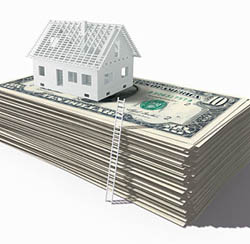How to build credit fast is actually very easy provided that you have a clean credit history. What this means is that you do not have an existing bad credit report.
If you have never taken out a loan of any type before, have never used any type of credit card – whether one issued by a financial institution or one given to you by a retail shop – you should have a clean credit report.
Unauthorized Use of Your Identity
It is important that you make sure you have a clean slate to start with. The best way to determine this is to check your credit history from authorized credit bureaus. 
If you suddenly discover that attached to your name is a bad credit report, you should notify the corresponding credit bureaus as well as the establishments with whom you have a bad credit line.
There are two scenarios that could have given you a bad credit report: one is that you have the same name as someone else and second is that you have been victimized by identity theft.
Whatever the case may be, it is of vital importance that you wipe-off this mistaken bad credit report first.
Building Your Credit
1. First, make sure that you pay all your bills on time. Paying way past your due dates, no matter how infrequent, will instantly lower down your credit score. Your payment history actually takes up thirty-five percent of your credit score so it’s best to regularly pay your bills on time.
2. Open a savings and a checking account. It is important for possible creditors to know that you have money saved in the bank. With your savings account, regularly depositing any amount of money – the bigger, the better – creditors will see that you have a steady flow of money. A stagnant bank account will not do much for your credit score.
For your checking account, it is also important that you have enough money to back-up the checks that you’ve written. Issuing a bouncing check will immediately lower your credit score to a staggering degree.
3. Borrowing history. Your borrowing history takes up thirty percent of your credit score. If you are in the habit of taking out loans frequently, maxing out credit cards – either your gas card or your retail card if you don’t have any credit cards yet issued by a financial institution – this will also considerably lower down your credit score.
Creditors will check your borrowing history to see if you are taking out more than you can afford to pay for.
4. Credit history. If you have a long-time credit history coupled with a good payment history, this increases your credit score. This takes up 15% of your credit score.
5. Credit types and credit inquiries. Ten percent of your credit score goes to the types of credit that you have. Car loans, home mortgage and personal loans are checked by creditors. A mix of loans is ideal because creditors will see that specific institutions trust you enough to lend you money.
The last ten percent is taken up by your credit inquiries. For every loan that you try to take, creditors will conduct an inquiry on your credit report. The more inquiries you have, the lower your score because again, creditors may think that you are borrowing way beyond your capacity to pay.


